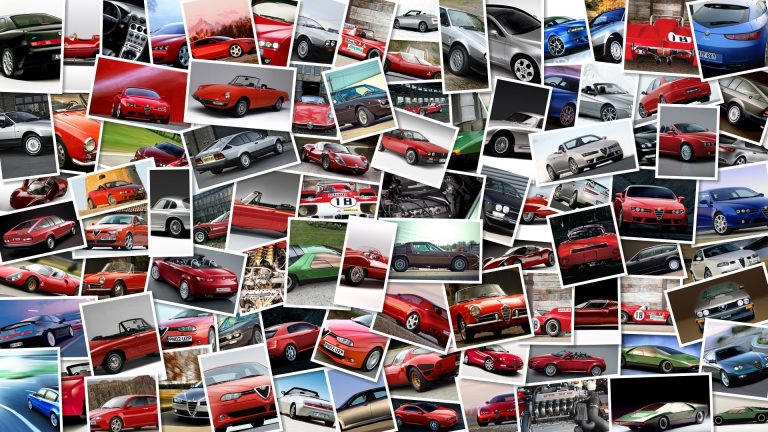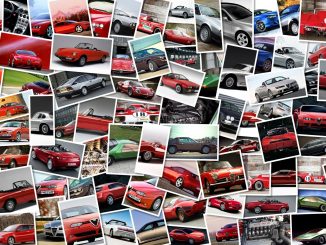
Audi announces the Q7 4.
2 TDI, the most powerful diesel SUV on the market.
For now (the Q7 6.
0 V12 TDI is coming…).
The Q7 V12 TDI has the same engine as the A8 4.
2 TDI: a 4.
2-liter V8 bi-turbocharged diesel engine, with a power output of 326 ps at 3,750 rpm and 760 Nm of torque, constant between 1,750 and 2,500 rpm.
With this engine the Q7 can accelerate from 0-100 km/h in 6.
4 seconds and reach a top speed of 236 km/h.
Average fuel consumption is 11.
1 litres/100 km.
The Q7 4.
2 TDI will be in showrooms next summer.
The full text of the Audi press release follows.
The most powerful diesel SUV on the market – The Audi Q7 4.
2 TDI240 kW/326 bhp and 760 Nm of torque – Audi proudly presents the most powerful diesel SUV on the world market.
A state-of-the-art eight-cylinder engine with common rail fuel injection and Piezo injectors not only stands out on account of its sheer output but also demonstrates outstanding efficiency: the 4.
2 TDI has an average fuel consumption of just 11.
1 litres of diesel per 100 kilometres.
The Audi Q7 places the concentrated power of the V8 TDI, an engine with a displacement of 4.
2 litres, into a vehicle concept that impresses with its versatile sportiness.
Even at its debut, the Q7 model series set new standards in its segment.
Now the 4.
2 TDI is moving the bar even higher.
Under the bonnet of the new Audi Q7 4.
2 TDI is the most powerful diesel engine the brand has to offer.
The 4.
2-litre capacity of the V8, which already powers the A8 luxury saloon, generates an output of 240 kW/326 bhp and 760 Nm of torque at engine speeds between 1,800 to 2,500 rpm.
The most powerful SUV on the market has the drivability of a sports car.
The Audi Q7 accelerates from standstill to 100 km/h in 6.
4 seconds and has a top speed of 236 km/h.
These figures are also the new best marks in its segment.
The Audi Q7 4.
2 TDI transmits its power through a six-speed tiptronic gearbox and a sportily tuned quattro driveline, which in normal situations splits propulsive force 40 percent to the front wheels and 60 percent to the rear axle.
Audi’s “adaptive air suspension” is standard on this most powerful of diesels – it unites dynamic handling with the ride comfort of the luxury class.
The Audi Q7 4.
2 TDI is also at the top of the tree with its standard convenience equipment.
The leather design package gives the interior a noble feel.
The electric tailgate makes lighter work of loading.
A new feature is the Audi lane assist system, which emits a pulse to inform the driver before he inadvertently crosses a line on the carriageway.
The engine: concentrated pulling powerLike all the engines in the Audi Q7 series, the 8-cylinder diesel heralds from Audi’s new V-engine family.
With a displacement of 4,134 cc, the large TDI has a maintenance-free chain drive on the gearbox side for its four camshafts and ancillaries.
The angle between the cylinder banks is 90 degrees, the cylinder spacing 90 millimetres, the overall length just 520 millimetres.
The crankcase is made of the high-tech material vermicular graphite cast iron.
This forms the basis for the light weight of the engine – just 257 kilograms.
The V8 TDI is a masterpiece of engineering.
The best examples: the crankshaft is forged from chrome-molybdenum alloy steel; the cylinders are of cast aluminium.
Low-friction roller cam followers actuate the 32 valves; electronically actuated flaps give the intake air into a defined swirl.
Two turbochargers with variable-geometry turbines provide solid torque even at low engine speeds while still allowing a high power output.
Large charge-air coolers reduce the temperature of the compressed air.
The common rail fuel injection system contains compact Piezo inline injectors that are extremely precise and fast switching.
They are capable of up to five injection sequences per working cycle.
The 4.
2-litre TDI develops 240 kW/326 bhp at 3,750 rpm.
Between 1,800 and 2,500 rpm it induces its impressive pulling power onto the crankshaft – 760 Nm of torque.
The most powerful diesel engine in the SUV segment gives the Audi Q7 the sportiest performance of all diesels.
The premium SUV sprints from 0 to 100 km/h in just 6.
4 seconds.
On the motorway it can reach a top speed of 236 km/h.
The driveline: dynamic characterThe Audi Q7 4.
2 TDI is equipped as standard with the six-speed tiptronic automatic gearbox.
The dynamic shift program (DSP) manages the gearshifts, whereby it orientates itself to the driver’s style and to the characteristics of the road.
A special sport programme – the S programme – supports a particularly dynamic driving style.
The driver can intervene at any time, either at the gear gate for the selector lever or at the optional paddles on the steering wheel.
As the tiptronic in the Audi Q7 was designed for high torque from the very outset, it does not need to be specially reinforced to team up with the V8 diesel engine.
Like all Audi Q7 models, the 4.
2 TDI has a self-locking centre differential with asymmetric/dynamic torque split.
In regular operation, it transmits the drive force with a ratio 40:60 to the front and rear axles respectively.
If needed, torque is distributed at varying ratios between the front and read axles according to the level of grip: optimum traction is provided at all times.
This ultramodern quattro technology provides for sporty characteristics reminiscent of a rear-wheel drive vehicle, for exceptional agility and for a steering precision that is to the greatest possible extent free of influences from the driveline.
The running gear: sporty performanceThe running gear on the Audi Q7 4.
2 TDI supports this dynamic presence.
And it superbly masters all of these challenges – whether in rough terrain or on the road, where handling characteristics, driving safety and comfort set the standards.
Adaptive air suspension, fitted as standard, rounds off the outstanding character – the combination of pneumatic suspension and electronically controlled damping with dynamic roll stabilisation forms the perfect synthesis of sportiness and maximum rolling comfort.
The Audi Q7 4.
2 TDI driver can set the adaptive air suspension to any of three maps, from very sporty to very comfortable.
In addition, the system allows five ground clearance settings.
Up to 205 millimetres of air under the vehicle (offroad mode) is usually enough even on demanding terrain.
The rear can be lowered by 71 mm for comfortable loading.
The Audi Q7 running gear is characterised by its high degree of sophistication.
All four wheels are independently mounted on double wishbones.
The axle components are made largely of aluminium.
The servotronic steering is distinctively direct and precise, giving a feeling of excellent road contact.
The Audi Q7 4.
2 TDI runs on sporty 18-inch alloy wheels with size 255/55 tyres.
Behind them, the four brake discs are internally ventilated and generously dimensioned – 350 millimetres in diameter on the front axle and 358 millimetres on the rear axle.
The front brake callipers employ 6-piston technology, like on a top sports car.
The equipment: intelligent luxuryThe leather design package is standard on the new Audi Q7 4.
2 TDI.
It includes inlays in three different types of wood or aluminium, and seat upholstery in Cricket leather.
The front seats are electrically heated as standard.
An on-board computer, cruise control system and multifunction steering wheel enhance comfort for the driver.
The much-praised “MMI basic” control system is also fitted as standard.
A practical tool is the electrically driven tailgate, whose opening angle can be programmed.
A range of assistance systems makes driving in Audi’s performance SUV even safer.
A new technology that is enjoying its debut in the Audi Q7 4.
2 TDI is Audi lane assist.
It informs the driver if the lane is inadvertently left upwards of a speed of around 65 km/h.
If the system is activated and the driver has not indicated, then shortly before the vehicle crosses the line marking, which is detected by Audi lane assist, the system alerts the driver by making the steering wheel vibrate (only in conjunction with the 4-spoke multifunction steering wheel).
Optional Audi adaptive cruise control is a radar-supported cruise control system incorporating active distance control.
If required it can be combined with the “braking guard” brake assist system.
Audi’s “side assist system” employs radar technology to monitor the blind spot and inform the driver if it is dangerous to change lanes.
The “Audi parking system advanced” uses a camera for the view to the rear.
The aid lines on the monitor make parking an enjoyable task.
Numerous interesting features are available for the dynamic lines of the exterior and for the spacious interior of the 5.
09-metre-long Audi Q7: 21-inch wheels, the “open sky system” glass roof or the rail system for the generous luggage compartment, which has a capacity of up to 2,035 litres.
A deluxe climate control system is standard.
The seats are extremely variable.
Like all Audi Q7 models, the 4.
2 TDI is available as a 5, 6 or 7-seater.
A 4-seater version will be available at a later date.
The new Audi Q7 4.
2 TDI will be in the showrooms in the early summer.





